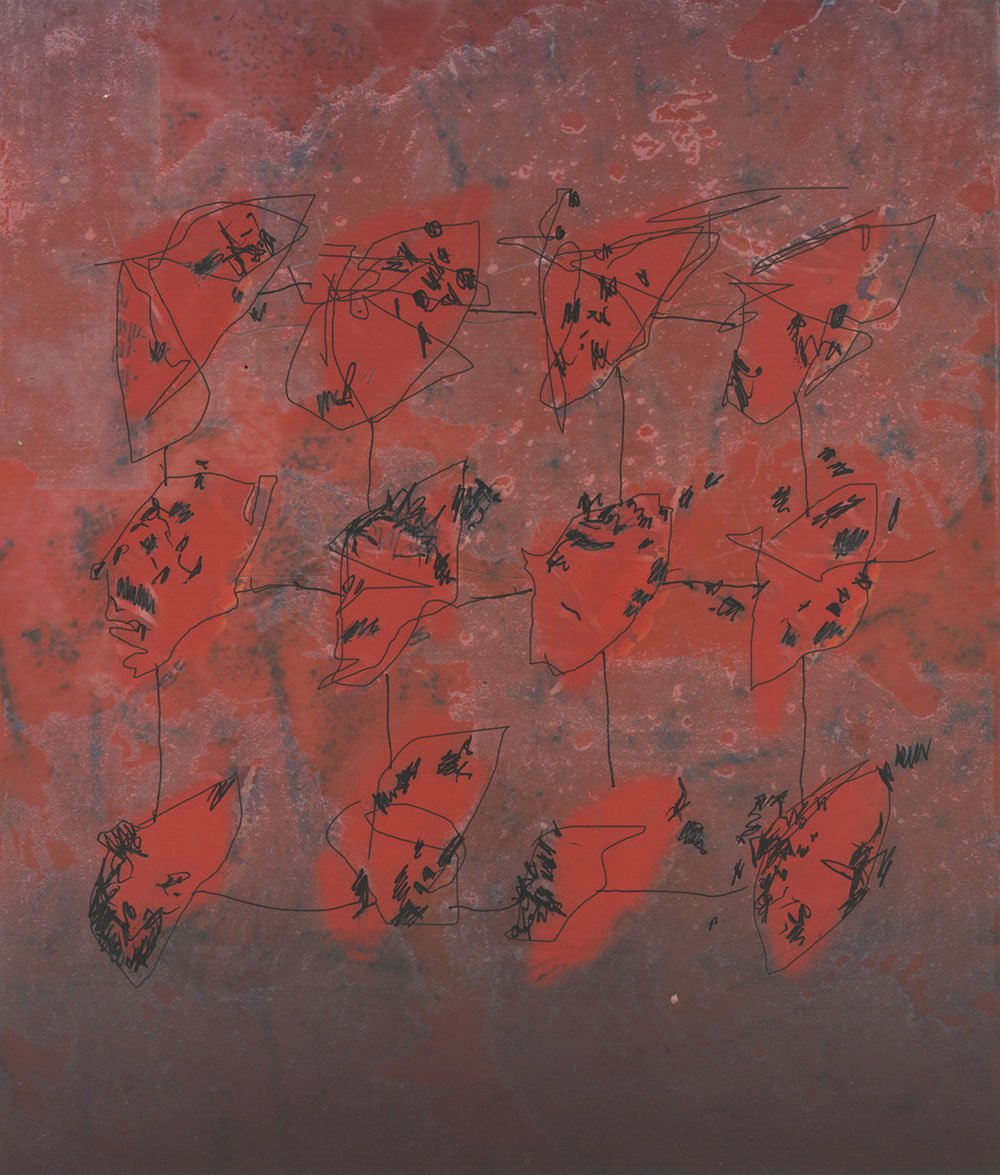New work by Judy Walsh 2020/2025
Open Window Judy Walsh 2025. Oil on board 108cm x 84cm Each element present in this painting suggests various familiar objects, a window, a shutter, a window frame, and a balcony railing. Unlike the piece titled "Open Window, Collioure, (1905) which was created by Henri Matisse, in this work, we seem to be looking into the window from the perspective of the outside observer. There is absolutely nothing to see here, inviting the viewer to ponder the significance of this absence. The artwork encourages us to consider what this absence might imply about the sense of outsiderness experienced by the viewer.
Atomic no. 20 (Oil on panel 86 x 86) Judy Walsh 2023
The title of the painting featured here is derived from the atomic no. on the Periodic Table published by the Royal Society of Chemistry (Website below) I like to consider that a landscape can be portrayed in different ways and was interested in portraying the structure and history of the area.
https://www.rsc.org/periodic-table/element/20/calcium
The area in which I live is called the Causse de Quercy and is a Unesco global geopark.
UNESCO Global Geoparks are single, unified geographical areas where sites and landscapes of international geological significance are managed with a holistic concept of protection, education and sustainable development. The website below tells you why the Causse de Quercy is an internationally important area.
Journey through a landscape (Oil on panel 87cm x 110cm) Judy Walsh 2023
A journey through a landscape can reflect the personal experiences and emotions of the traveler. Each curve of the path and each rise of the hill can mirror the highs and lows of life, creating a backdrop that informs a narrative. As one walks towards the horizen, memories may emerge, tied to the sights and sounds surrounding them. The changing seasons can symbolize different life phases, from the freshness of spring representing new beginnings to the starkness of winter reflecting solitude or introspection. In this way, the landscape becomes a silent witness to our stories, intertwining biographical elements with the natural world.
Riverside (Oil on panel 82cm x 94cm) Judy Walsh 2023
Diptych unhinged 1/Cool World Judy Walsh 2021-22 (Oil on panel 1m x 1m)
Diptych unhinged 2/Hot World Judy Walsh 2021-22 (Oil on panel 1m x 1m)
Moth: Preliminary to painting
Moth. (Oil on panel 1m x 1m) Judy Walsh 2020
“For she was beautiful. Her beauty made the bright world dim, and everything beside Seemed like the fleeting image of a shade. No thought of living spirit could abide (Which to her looks had ever been betrayed) On any object in the world so wide, On any hope within the skies, But on her form and in her inmost eyes.” Verse 12: The Witch of Atlas (Published 1824) Percy Bysshe Shelley
“Tis said she first was changed into vapour; And then into a cloud-such clouds as flit (Like splendour-winged moths against a taper.) Verse 3: The Witch of Atlas (Published 1824) Percy Bysshe Shelley
Lost in the woods-spliced Lost in the Woods-Spliced is a visual narrative that explores themes of isolation and introspection in a fragmented environment. The artwork suggests woodland, creating the disorienting feeling of getting lost.
Digital image. The original artwork was hand painted and then scanned. Additional elements and compositional changes have been added. Printed on archival paper as a limited edition (20).
Lost in the woods-spliced. Judy Walsh 2020 (Printed on Hahnemühle 300g. Image size 35cm x 22.4cm Paper size 42cm x 29.7cm)
The Beautiful and the good
The Greeks had a saying, kalos kagathos, "the beautiful and the good," which they applied to those whose outer beauty reflected moral goodness of mind and spirit. This thought helps explain the appeal of classical Greek art. Beyond the formal and technical means for creating harmonious and balanced images, the Greeks imparted to their works of art something of this greatness of spirit.
Dramatic political developments had made the fifth century a time when the individual could indeed take charge of his destiny, for this was the first time in the history of the world in which a democratic government flourished. The reforms of Kleisthenes in 508-507 B.C. finally broke the power of the wealthy and of the landed aristocracy. By grouping the people of Athens and Attica into ten new tribes, Kleisthenes shattered old power alignments and gave every citizen a voice. A new sense of the power of the individual was in the air, and with it came a new sense of responsibility. Thus we have firm cultural grounds for seeing in the works of art a sense of measured action with full consciousness of its consequences, a sense of power tempered with calm deliberation.
https://www.nga.gov/content/dam/ngaweb/research/publications/pdfs/the-greek-miracle.pdf
The Beautiful and the good consumed Judy Walsh 2020 (Aquatint printed on Hahnemühle 300g. Image size 39cm x 49cm)









